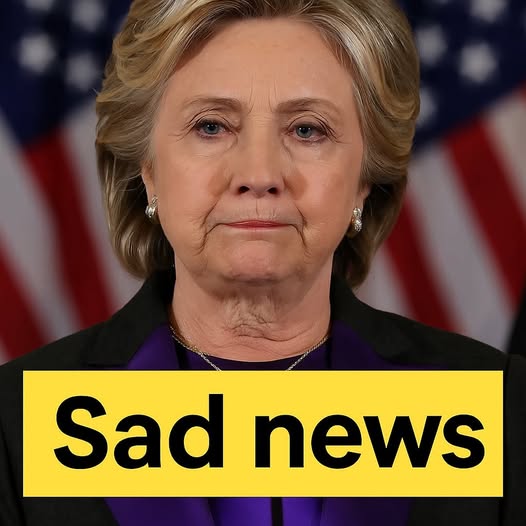Hillary Rodham Clinton stepped up to the podium yesterday afternoon in Washington, D.C., her voice steady but tinged with emotion, and delivered news that reverberated across the nation. For more than three decades she has been a fixture of American politics—First Lady, U.S. Senator, Secretary of State, and the first woman to clinch a major party’s presidential nomination—and yet in that quiet room, surrounded by close aides and journalists, she admitted that the moment had finally arrived: “This isn’t easy… but it’s time,” she said, pausing as her gaze swept the assembled crowd. With those five words, she signaled the end of one of the most influential careers in modern memory, even as she hinted at a new chapter yet to be written.
Her announcement came after weeks of speculation. In recent months, Mrs. Clinton had quietly scaled back public appearances, sparking rumors of health concerns or a retreat from public life. But those closest to her insist that the decision was deliberate—born not of fatigue, but of reflection. In her speech, she spoke of long nights spent revisiting campaign trail memories, of conversations with family and friends that always returned to the same question: what comes next after a lifetime devoted to service? She spoke of the exhilaration of debate stages and the heartbreak of narrow defeats, of diplomacy in foreign capitals and battles won—and lost—on the home front. And ultimately, she announced her choice to step aside from active politics, dedicating herself instead to mentoring a new generation of leaders and championing causes she believes will shape the country’s future.
News outlets and social media erupted within minutes. Some conservative commentators hailed her departure as the closing chapter of an era: a chance, they argued, for fresh voices unburdened by the baggage of the past. On the left, many expressed gratitude for her decades of perseverance in the face of relentless criticism, congratulating her on achieving milestones once thought unattainable for women in politics. “Thank you, Hillary, for blazing this trail,” tweeted one veteran Democratic strategist, while on cable networks pundits debated whether her decision would open the door for emerging figures like Governor Gretchen Whitmer or Representative Alexandria Ocasio‑Cortez to vie for future nominations.
Behind the scenes, Clinton’s inner circle was already hard at work crafting the next phase of her public life. Insiders say she plans to launch a foundation focused on civic engagement and women’s empowerment, drawing on lessons learned from her time at the State Department and on the campaign trail. She envisions fellowship programs for aspiring diplomats, scholarships for students from underrepresented communities, and research initiatives on the intersection of technology and human rights. Funding for these projects has reportedly been pledged by longtime supporters, eager to see her drive applied to causes beyond electoral politics.
Political analysts, meanwhile, are scrambling to assess the broader impact of her departure. Will Republicans seize on this as proof that the Democratic Party is moving away from establishment figures, or will organizers use it to showcase a reinvigorated, post‑Clinton vision? How will her decision influence the 2026 midterms and the race for the White House in 2028? Some strategists suggest that without Clinton at the center, the Democratic bench will face pressure to unite quickly around a clear successor, while others believe her absence could create a vacuum that fuels intra‑party contention.
Yet amid all the conjecture, Clinton herself remains focused on the personal significance of her decision. In closing, she thanked her husband, Bill Clinton, for forty years of partnership; her daughter, Chelsea, for unwavering support; and the countless volunteers and campaign workers who showed up in rain and shine to knock on doors and make phone calls. “I’ve always believed that public service is not a spectator sport,” she reminded the audience. “And though I’m stepping back from the headlines, I am not stepping away from that belief.” As she left the podium, aides quickly wrapped her in an embrace, and cameras caught the briefest flicker of relief on her face—a sign that after decades under relentless scrutiny, she was finally able to chart her own course, on her own terms. The nation, watching closely, now waits to see where that journey will lead.
